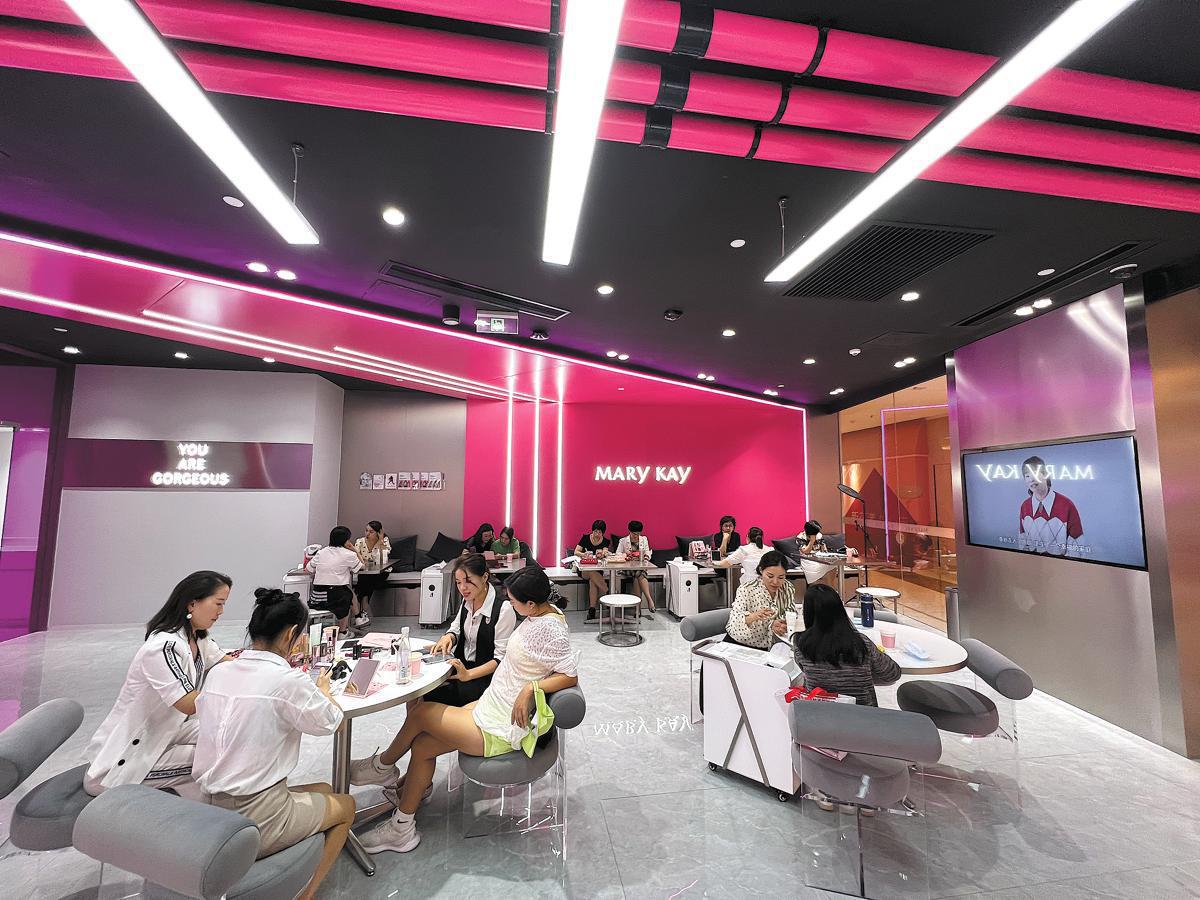Nation's 'welcoming environment' highlighted as Mary Kay seeks bigger presence in Asia-Pacific

With the domestic cosmetics market seen on a growth track, multinational players are looking to expand their footprint in the second-largest economy and continue to tap the local consumption potential.
For Mary Kay Inc, a United States-based beauty major that has been in China for almost three decades, China is not only a market to dig for growth, but is also a key platform to mull a bigger market presence globally.
"China is Mary Kay's largest overseas market, thriving due to its welcoming business environment and economic vitality," said Nathan Moore, global president of sales and marketing at Mary Kay.

"We've been in China for nearly 29 years, and we're committed to continuing our investing in the market, supporting our independent beauty consultants while offering high-quality, scientifically backed products for the ultimate beauty experience," Moore said.
The executive's bullish view is in line with the growth prospects of China's cosmetics market. According to a recent industry report co-released by Xinhuanet and China Association of Fragrance Flavour and Cosmetics Industries, the scale of the country's cosmetics market, which rose 6.4 percent year-on-year to reach 516.9 billion yuan ($72.4 billion) this year, is expected to soar further to stand at 579.1 billion yuan by 2025.
New consumption scenarios are highlighted in the report, as an increasing number of consumers are turning to online purchase channels, such as e-commerce platforms and livestreaming key opinion leaders, for beauty solutions and products.
The report found that some 50 percent of polled consumers tend to browse cosmetics online, while so far this year, in China, nearly 70 percent of such products were sold online.
Mary Kay also noticed the digital trend in the sector and made a significant move in 2020 by launching its customized e-commerce platform, which is a personal online sales platform for all its contracted beauty consultants. With such a platform, the company also aims to help more women in China with their businesses.
Consultants can operate their virtual stores without e-commerce backgrounds or technical skills. By overseeing store setups, accounts, and logistics, Mary Kay bypasses the traditional stocking phase, delivering products directly from its warehouses to customers.
This empowers its consultants to manage their work hours efficiently and operate their businesses with no worries over inventory load and minimal risk, the company said.
According to Mary Kay, total customer order volume has surged fivefold so far this year compared to that of 2020 in the Chinese market. However, the exact contract value was not disclosed.
With the Chinese market as a sample case, Mary Kay is mulling a greater presence in the Asia-Pacific region. During the Mary Kay China 2023 Seminar in Xiamen, Fujian province, in October, it launched the strategy of ONEderful Asia-Pacific, focusing on a broader market with hope to create more opportunities for its beauty consultants.
With efforts in digital technology, product portfolio and brand experience in the Asia-Pacific region, Mary Kay will further explore market potential and competitiveness of its beauty consultants.
"The Asia-Pacific market is ripe with potential, and we're excited to extend Mary Kay's unique business opportunities to more countries, enriching the lives of more women and their families along the way," Moore said.
According to market research by Euromonitor International, a global market observer, Mary Kay leads globally as the top direct selling brand of skincare and color cosmetics.
"It speaks volumes about our commitment to quality and innovation as well as our incredible community of independent beauty consultants who remain our heartbeat and driving force. Their dedication and passion have painted our past, present and future with vibrant shades of success," Moore said.
Consumption in China is seen on a steady recovery track since the beginning of this year after the nation optimized its COVID-19 prevention measures. Upbeat about the Chinese cosmetics market, multinational corporations have ramped up their efforts locally to meet the increasing demand.
Mary Kay, for example, invested over 80 million yuan between 2020 and 2023 in the digital end in China to further facilitate its sales module for its consultants.
Rituals Cosmetics, a Netherlands-based home and body cosmetics brand, said it will open 10 brick-and-mortar stores on the Chinese mainland by the end of 2024.
"Consumption recovery has been eye-catching in China this year, and the figures on uptrend have attracted efforts in local businesses of more big-name MNCs such as Mary Kay," said Long Chaocan, an investment consultant with China Galaxy Securities Co Ltd, adding that localized efforts will be key for such players seeking bigger global market share amid headwinds.
zhuangqiange@chinadaily.com.cn
Invest in China Copyright © 2026 China Daily All rights Reserved
京ICP备13028878号-6
 京公网安备 11010502032503号
京公网安备 11010502032503号





